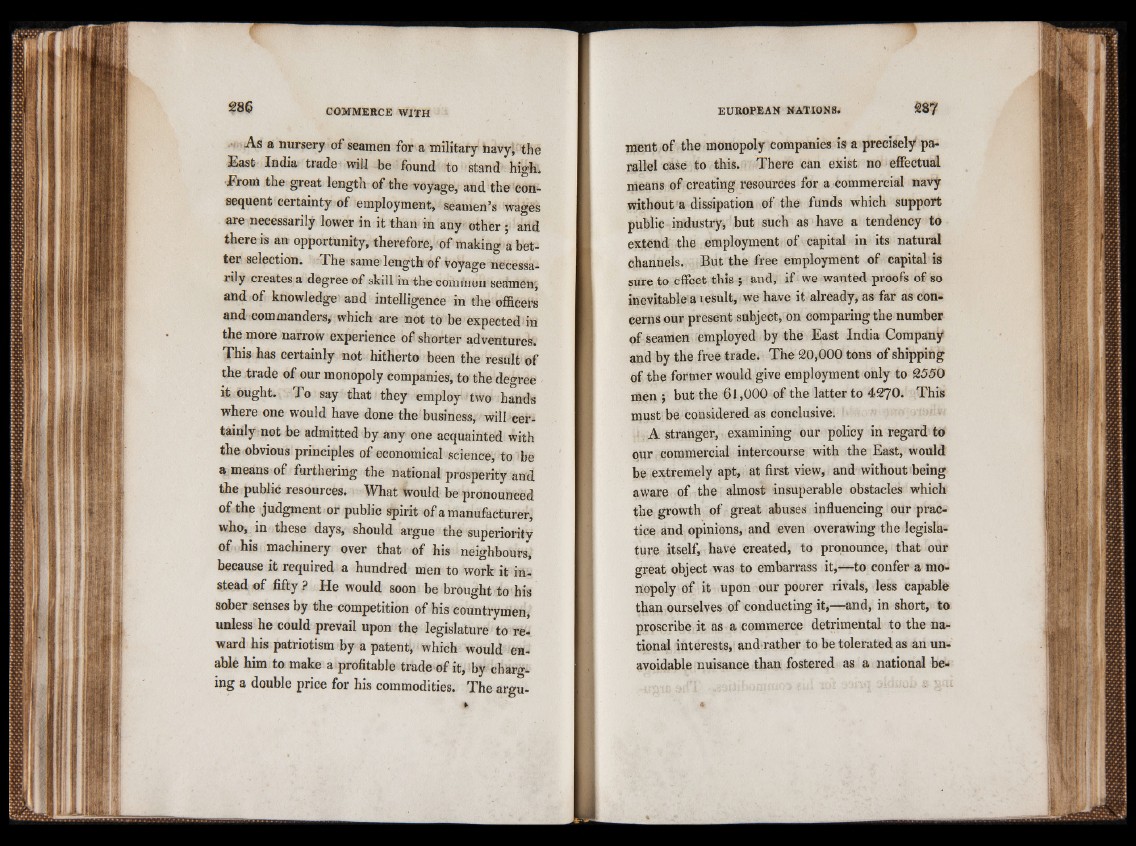
- As a nursery of seamen for a military navy/the
East India trade will be found to stand high,
from the great length of the voyage, and thecon-
sequent certainty of employment, seamen,s wages
are necessarily lower in it than in any other ; and
there is an opportunity, therefore, of making a better
selection. The same length of voyage necessarily
creates a degree of skill in the common seamen,
and of knowledge and intelligence in the officers
and commanders, which are not to be expected in
the more narrow experience of shorter adventures.
This has certainly not hitherto been the result of
the trade of our monopoly companies, to the degree
it ought. To say that they employ two hands
where one would have done the business, will certainly
not be admitted by any one acquainted with
the obvious principles of economical science, to be
a means of furthering the national prosperity and
the public resources. What Would be pronounced
of the judgment or public spirit of a manufacturer*
who, in these days,' should argue the superiority
of his machinery over that of his neighbours/
because it required a hundred men to work it instead
of fifty ? He would soon be brought to his
sober senses by the competition of his countrymen,
unless he could prevail upon the legislature to reward
his patriotism by a patent, which would enable
him to make a profitable trade of it, by charging
a double price for his commodities. The argumerit
of the monopoly companies is a precisely parallel
case to this. There can exist no effectual
means of creating resources for a commercial navy
without a dissipation of the funds which support
public industry, but such as have a tendency to
extend the employment of capital in its natural
channels. But the free employment of capital is
sure to effect this ; and, if we wanted proofs of so
inevitable a result, we have it already, as far as concerns
our present subject, on comparing the number
of seamen employed by the East India Company
and by the free trade. The 20,000 tons of shipping
of the former would give employment only to £550
men ; but the 61,000 of the latter to 4270. This
must be considered as conclusive.
A stranger, examining our policy in regard to
our commercial intercourse with the East, would
be extremely apt, at first view, and without being
aware of the almost insuperable obstacles which
the growth of great abuses influencing our practice
and opinions, and even overawing the legislature
itself, have created, to pronounce, that our
great object was to embarrass it,—to confer a monopoly
of it upon our poorer rivals, less capable
than ourselves of conducting it,—and, in short, to
proscribe it as a commerce detrimental to the national
interests, and rather to be tolerated as an unavoidable
nuisance than fostered as a national be